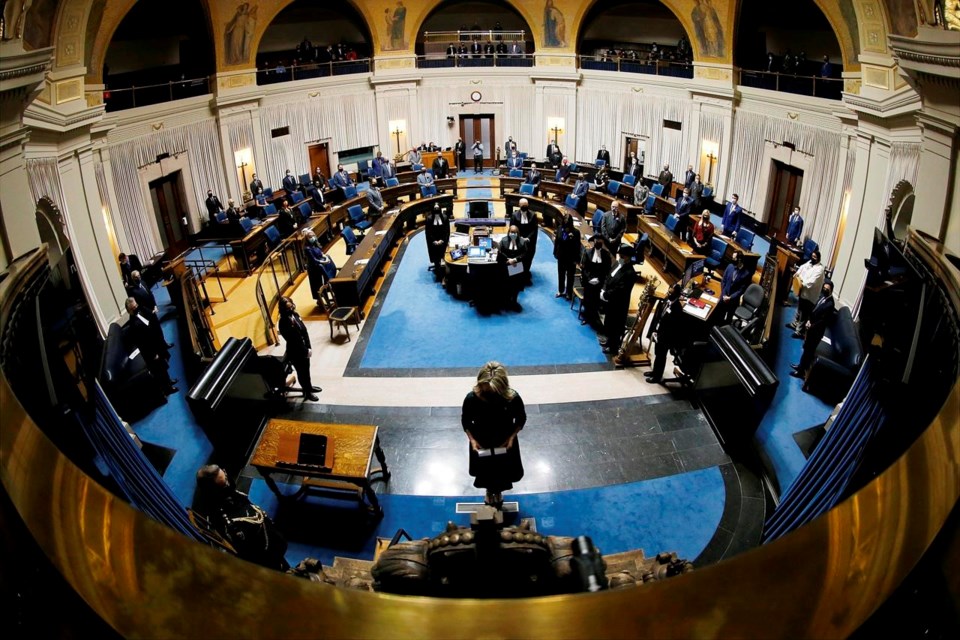WINNIPEG — The Manitoba government announced plans Friday to build nine new schools under a public-private partnership model, five years after abandoning a similar proposal.
The nine schools are to be awarded under a single tender, and the developer is to be in charge of ongoing major maintenance as well as construction, Government Services Minister James Teitsma said.
"The purpose of bundling the schools together is to really accelerate the time frame and to ensure that we get more schools built more quickly," Teitsma told reporters at a news conference at a school that opened earlier this year in southwestern Winnipeg.
The Progressive Conservative government, which is facing an election slated for Oct. 3, said the approach will allow the province to exceed its 2019 promise to build 20 schools in 10 years. The nine public-private schools are to make for a total of 23 schools in eight years, Teitsma said.
The government studied private partnerships for schools in 2018, but opted against the idea. It said at the time it could save money by building the traditional way and went ahead with construction of five schools.
Details such as whether the private developers or the public sector will own the new buildings will be worked out later, Teitsma said, but school divisions are to have control over the facilities.
"My understanding is that the school division will be able to use the school the same way they use a school like this one. So there shouldn't be any impact to the school division in terms of how they operate that school."
The Manitoba Liberals said they had obtained a 2022 "market sounding" document from consulting firm KPMG on the topic.Â
The document released by the party says that the government was considering a model in which it would repay developers for capital costs over a 30-year period that would also include a contract for maintenance, excluding custodial services. The province could also spell out conditions for a "handback" after the 30-year period
"The PCs might laud this project as a cost-saving measure in the short term, but taxpayers are going to be on the hook for higher costs for maintenance in the future," Liberal Leader Dougald Lamont said in a written statement.
The Canadian Union of Public Employees, which represents school support staff, bus drivers and other workers, said the public-private model — often called a P3 — is a bad idea.
"We have looked at evidence across Canada and we know that P3 schools are less accountable and will cost more," CUPE Manitoba president Gina McKay said.
The Nova Scotia government used a P3 model for schools in the 1990s and committed to long-term leases with the developers.Â
In 2017, after 20 years of leasing, the province paid nearly $50 million to buy 10 schools from the developers rather than renewing the lease agreements. The move was to save taxpayers tens of millions of dollars, the government said.
Teitsma said P3 infrastructure projects in Manitoba have been successful. He pointed to the Chief Peguis Trail roadway extension a decade ago and two other Winnipeg street projects. Contractors were awarded construction and maintenance work — a system that Teitsma said encourages higher quality construction to minimize maintenance costs.
"Those are really high-quality roadways. Those are roadways that kind of stand out in my mind as being built to last, maybe even to a higher standard than the rest of the city roadways."
Six of the nine new schools announced Friday were part of a 2019 promise and are to be located in Winnipeg and Brandon. The other three include a school in Winnipeg, one in the Seine River school division to the southeast of the capital and one in the Beautiful Plains School Division headquartered in Neepawa.
This report by The Canadian Press was first published March 24, 2023. Â
Steve Lambert, The Canadian Press



